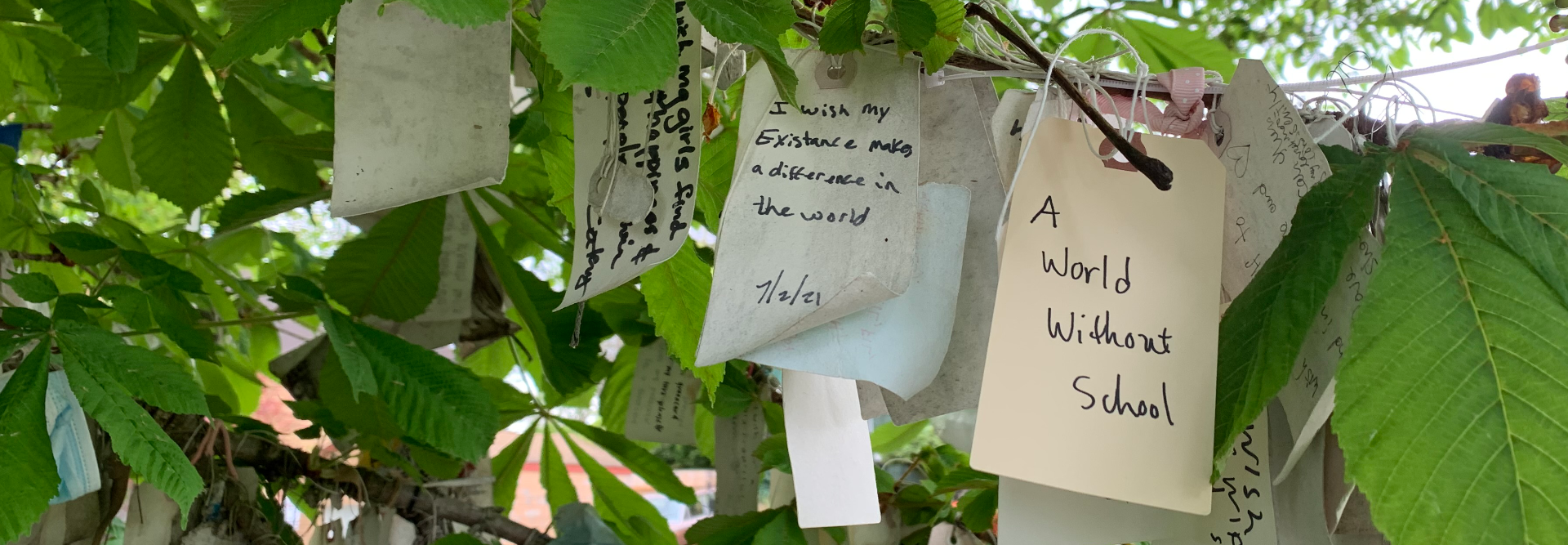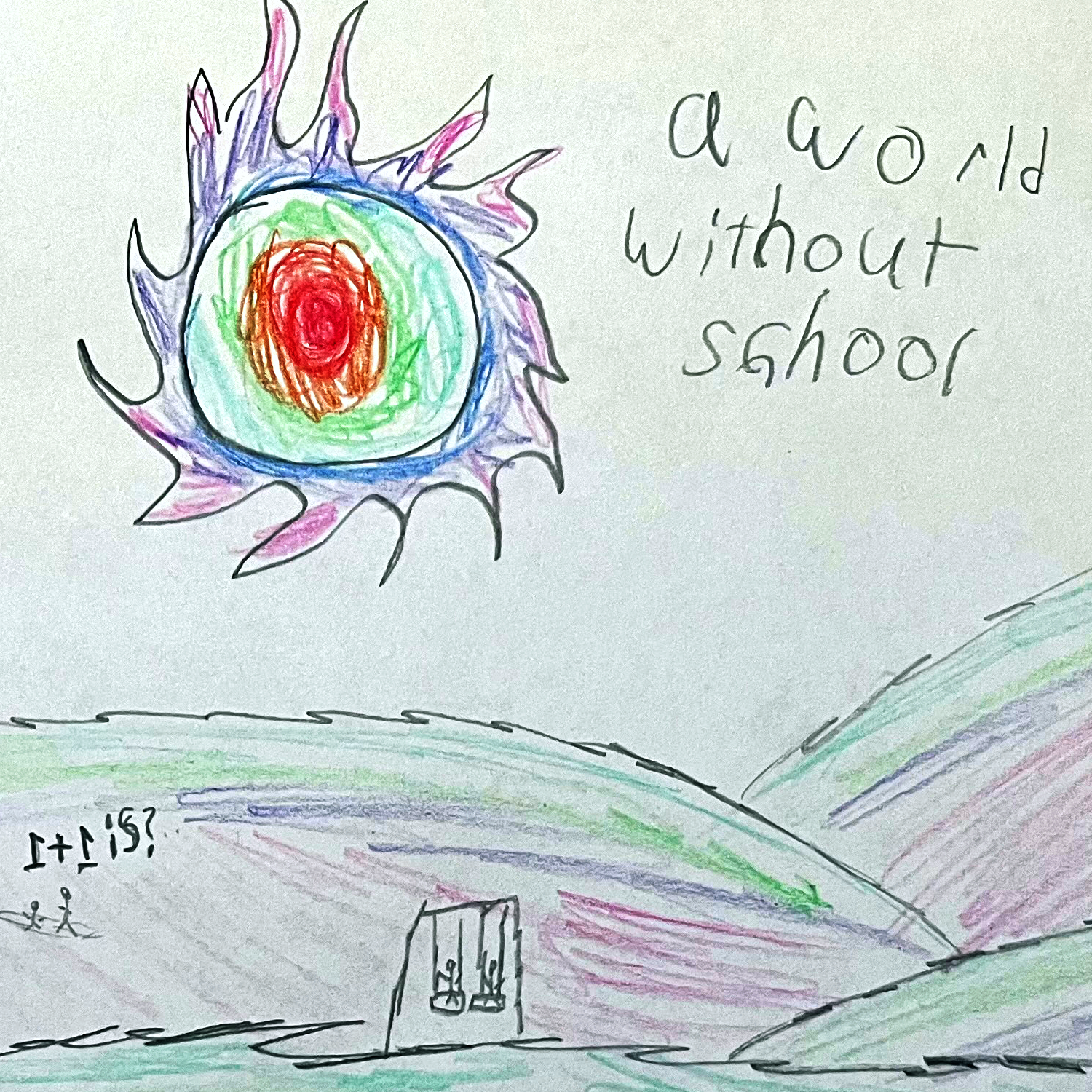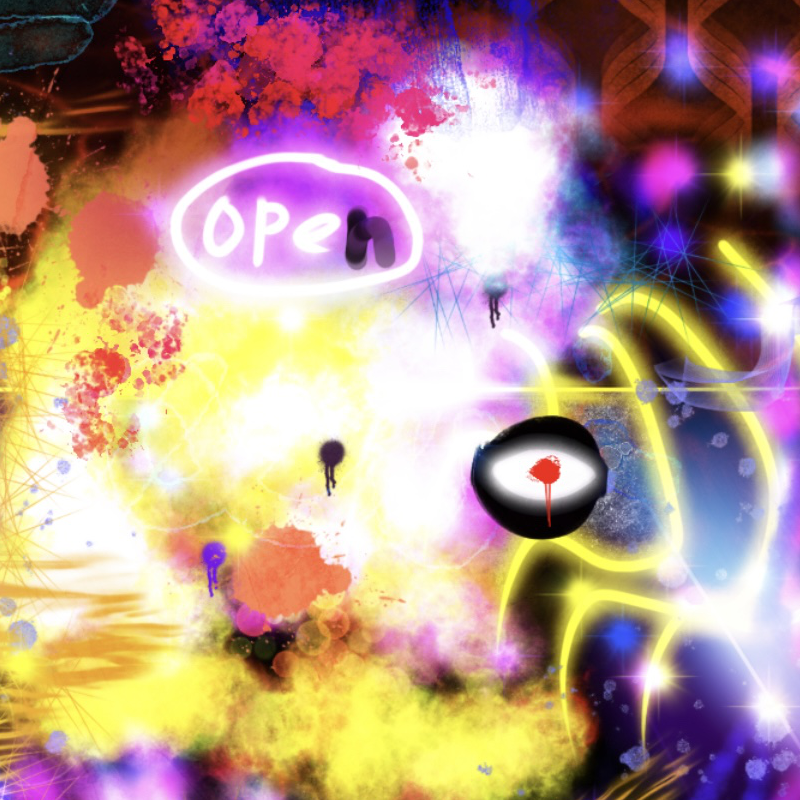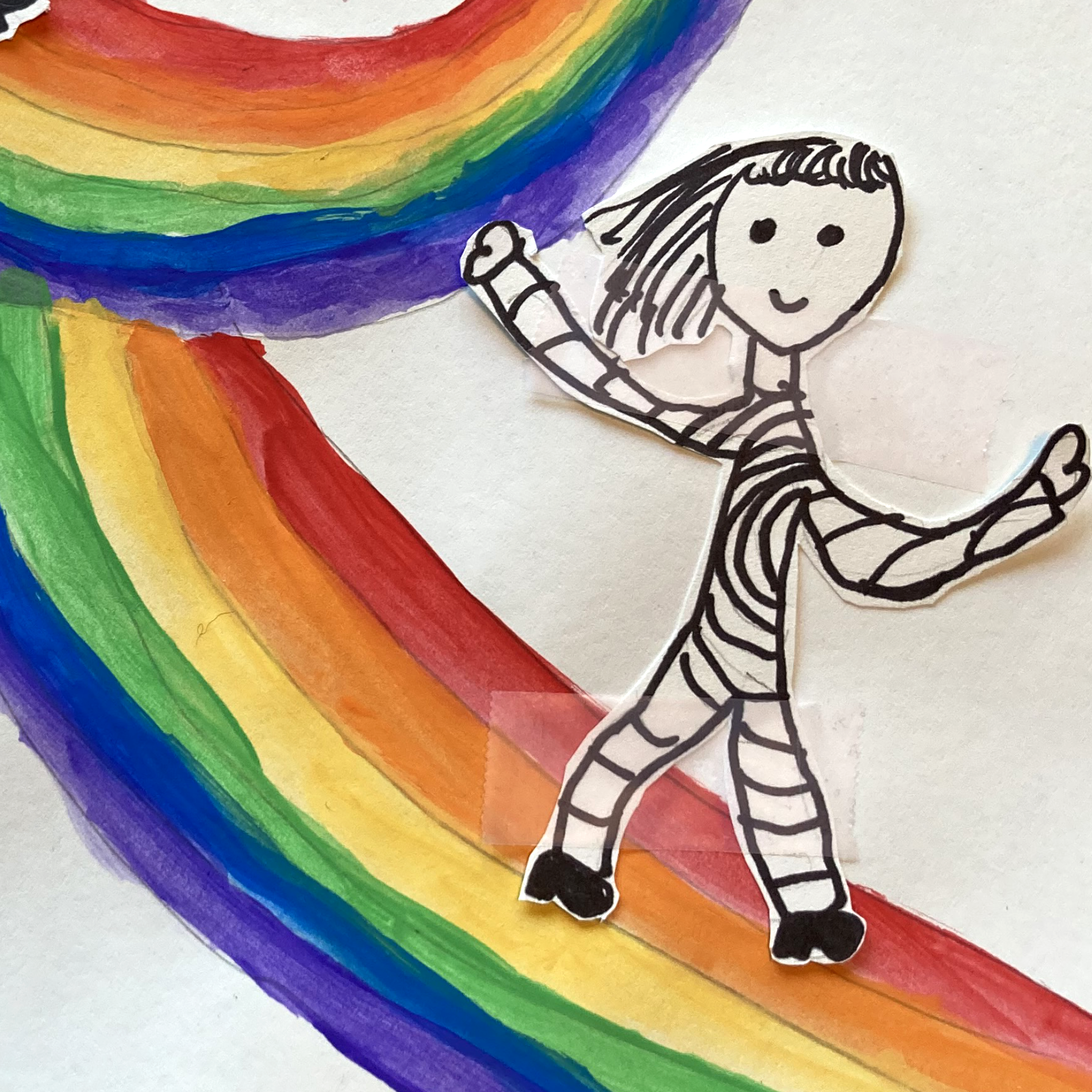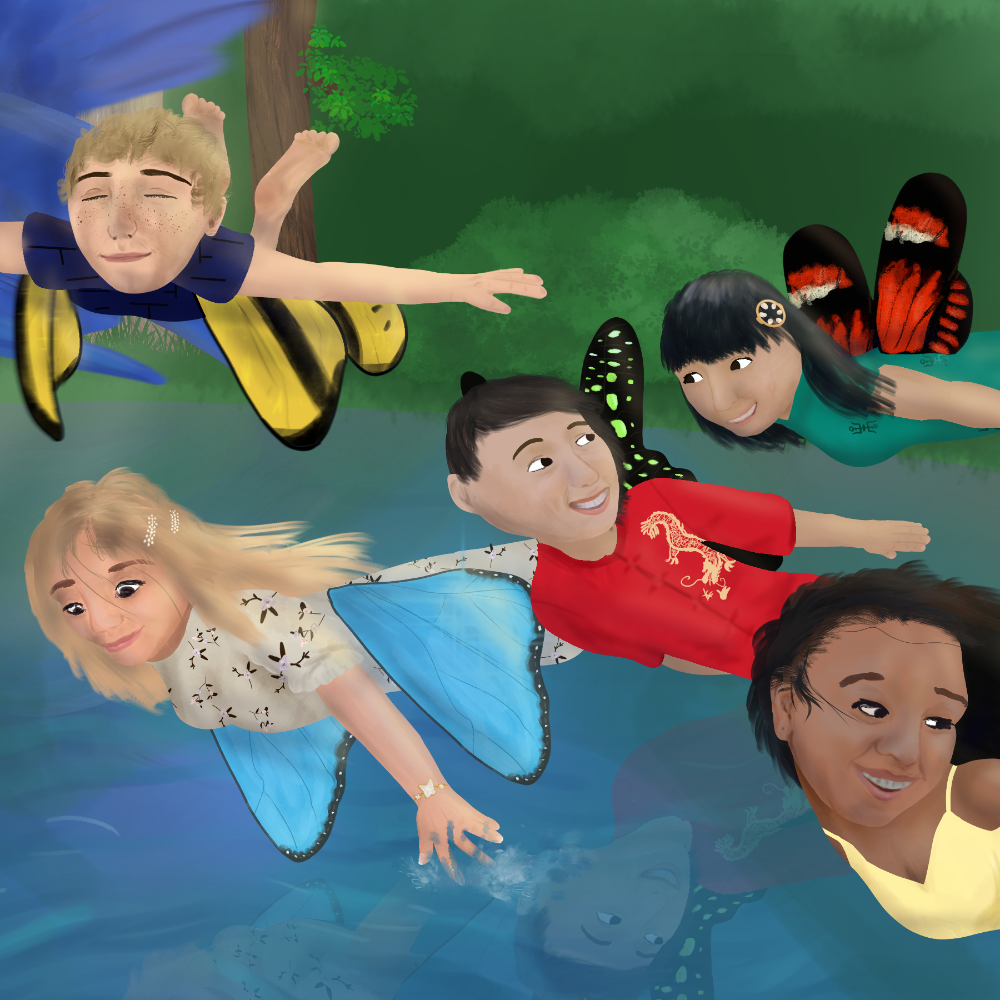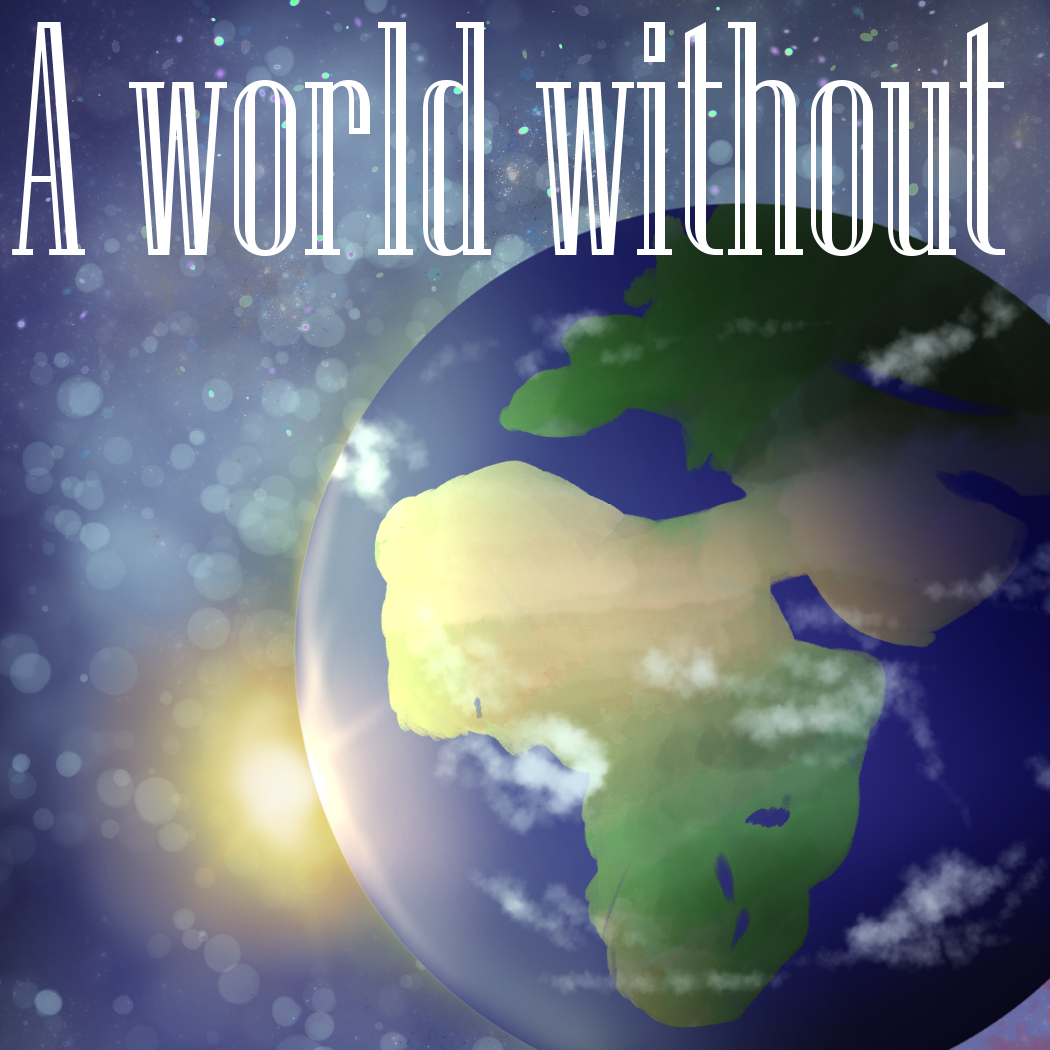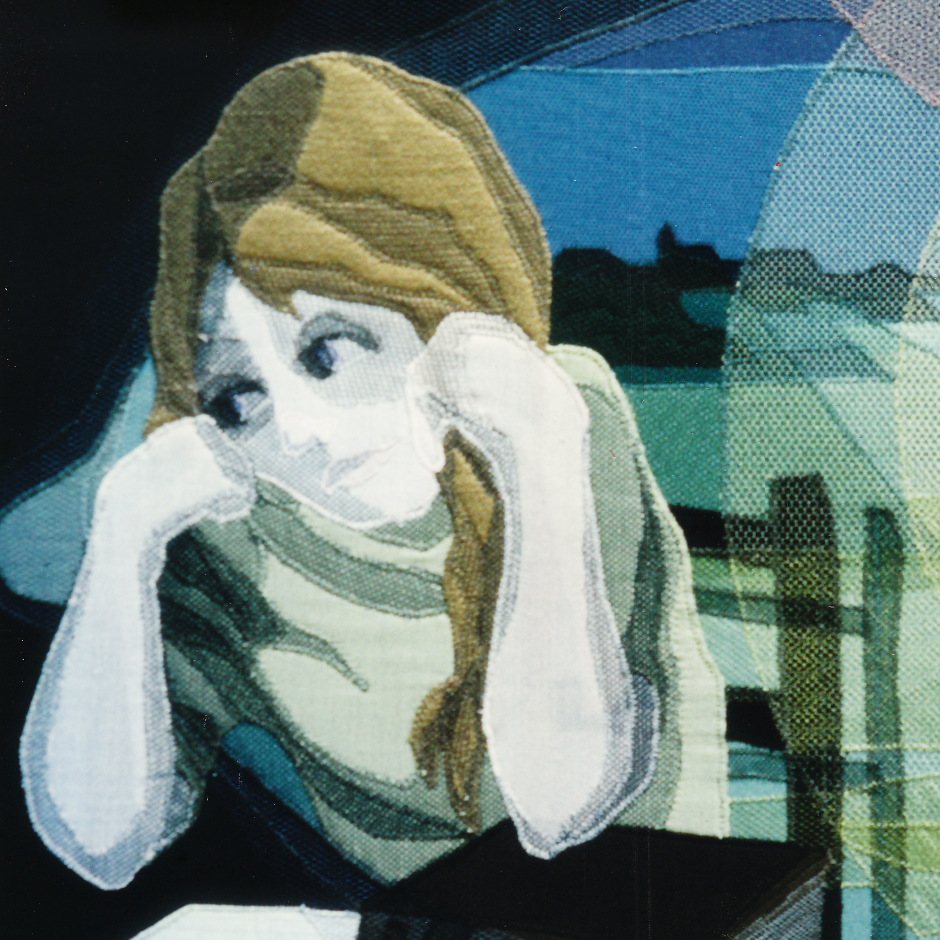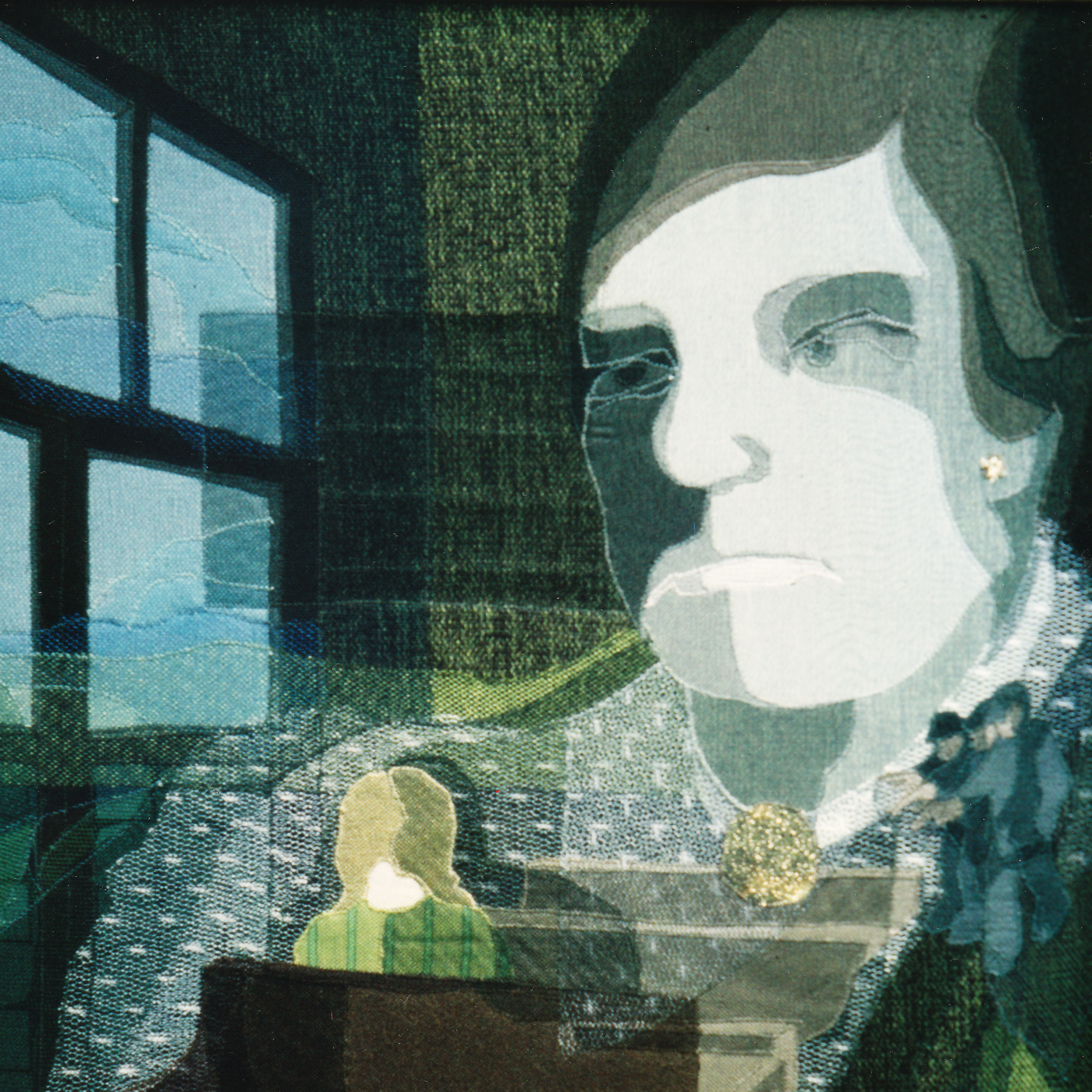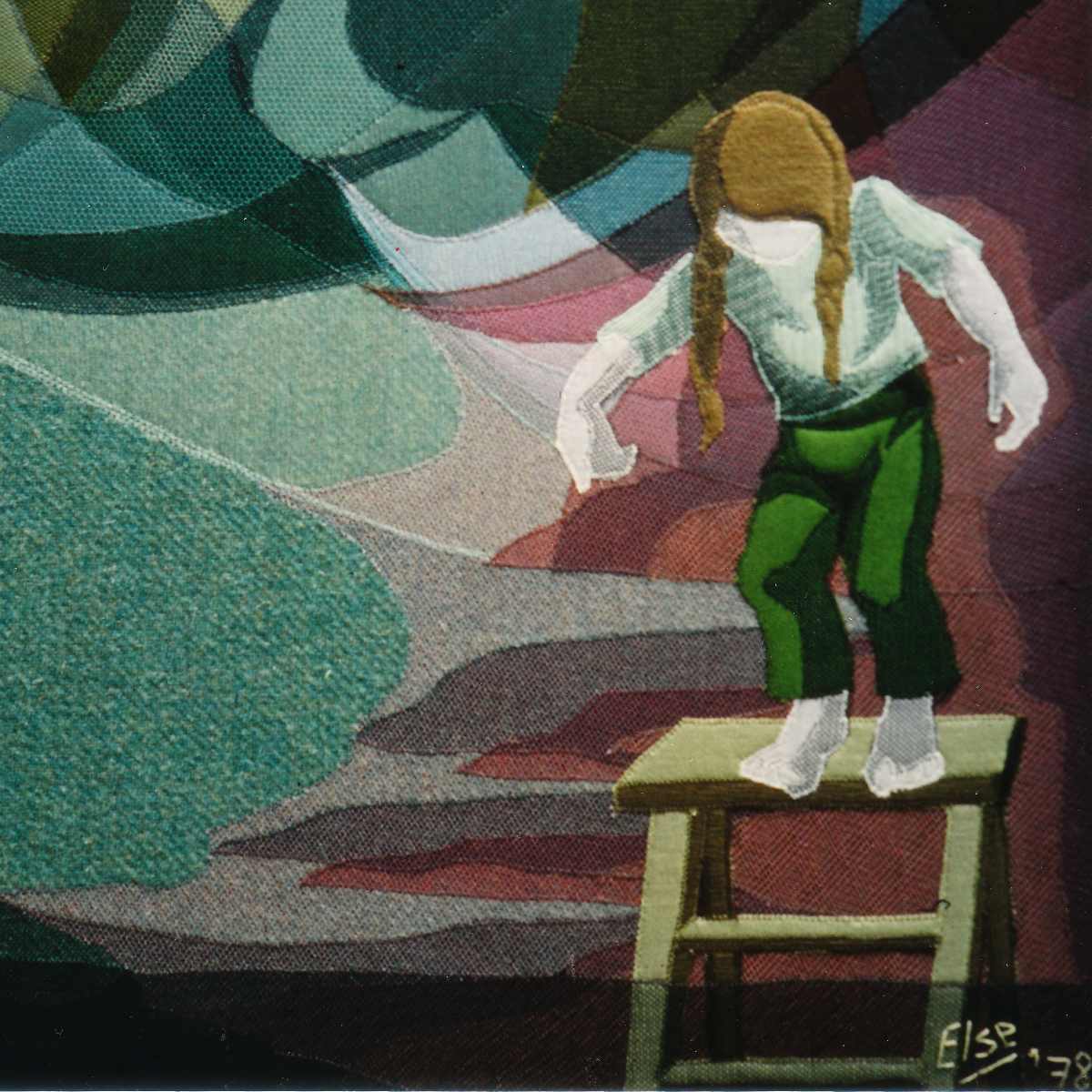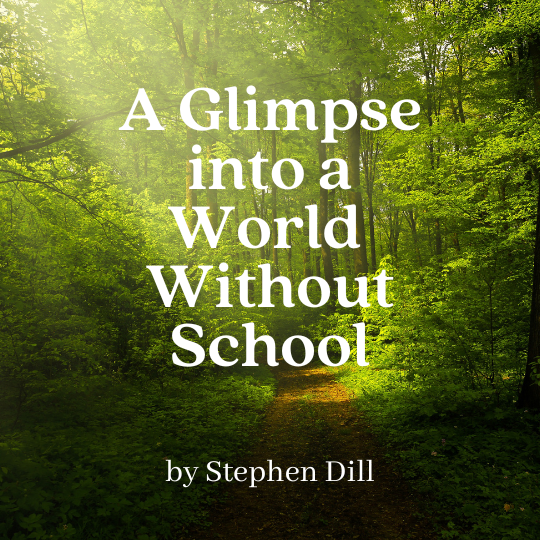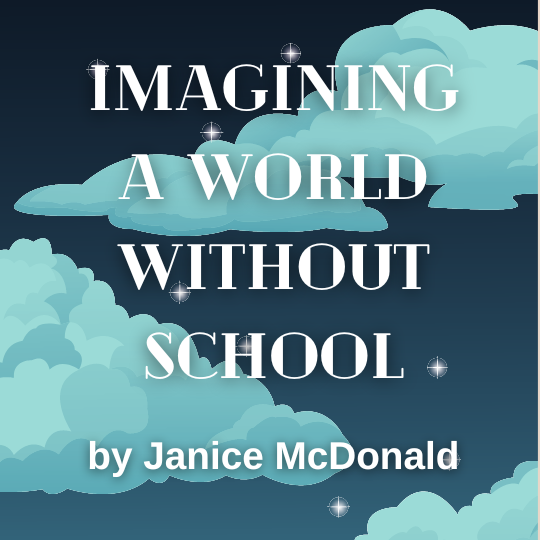People were asked to submit written content, drawings, paintings, audio, or video using the prompts below:
How do you imagine a world without school? Maybe some of you are already trying to live as if that were the case. How would it look for others to join you? What absence would you feel? What would have more space to thrive? What would the world feel like? How would the world smell differently without schoolish ideals?
They were invited to shed the schoolish notion of perfection, and submit a piece that embraces:
- Imperfection
- Process over product
- Good enough for now
- Not having all the answers
These are their creations
Click on the thumbnail to scroll down to the content
Artwork
Written Content
Stella’s Artwork
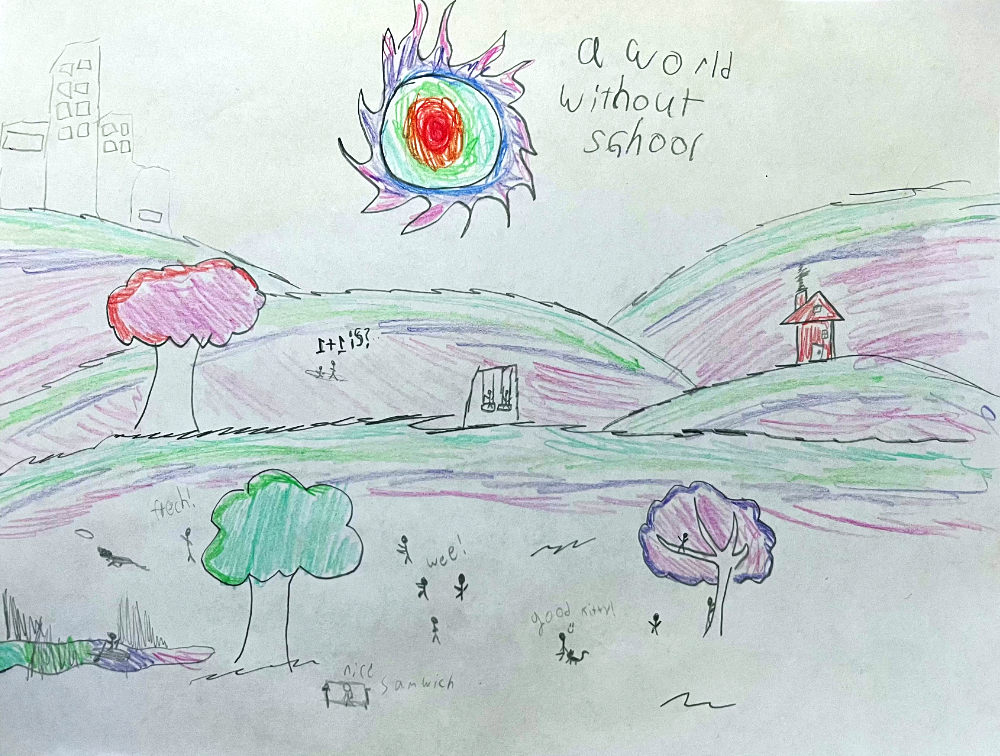
A world where creativity is everywhere and In everything
trees can be purple and grass can be red
hate can solve itself and kids are homeschooled
they choose what they learn and save the environment from destruction
they are allowed whatever their belief is and not forced.
Artist: Stella
Stella is a 10 year old who lives in Austin and loves drawing.
Kai’s Artwork
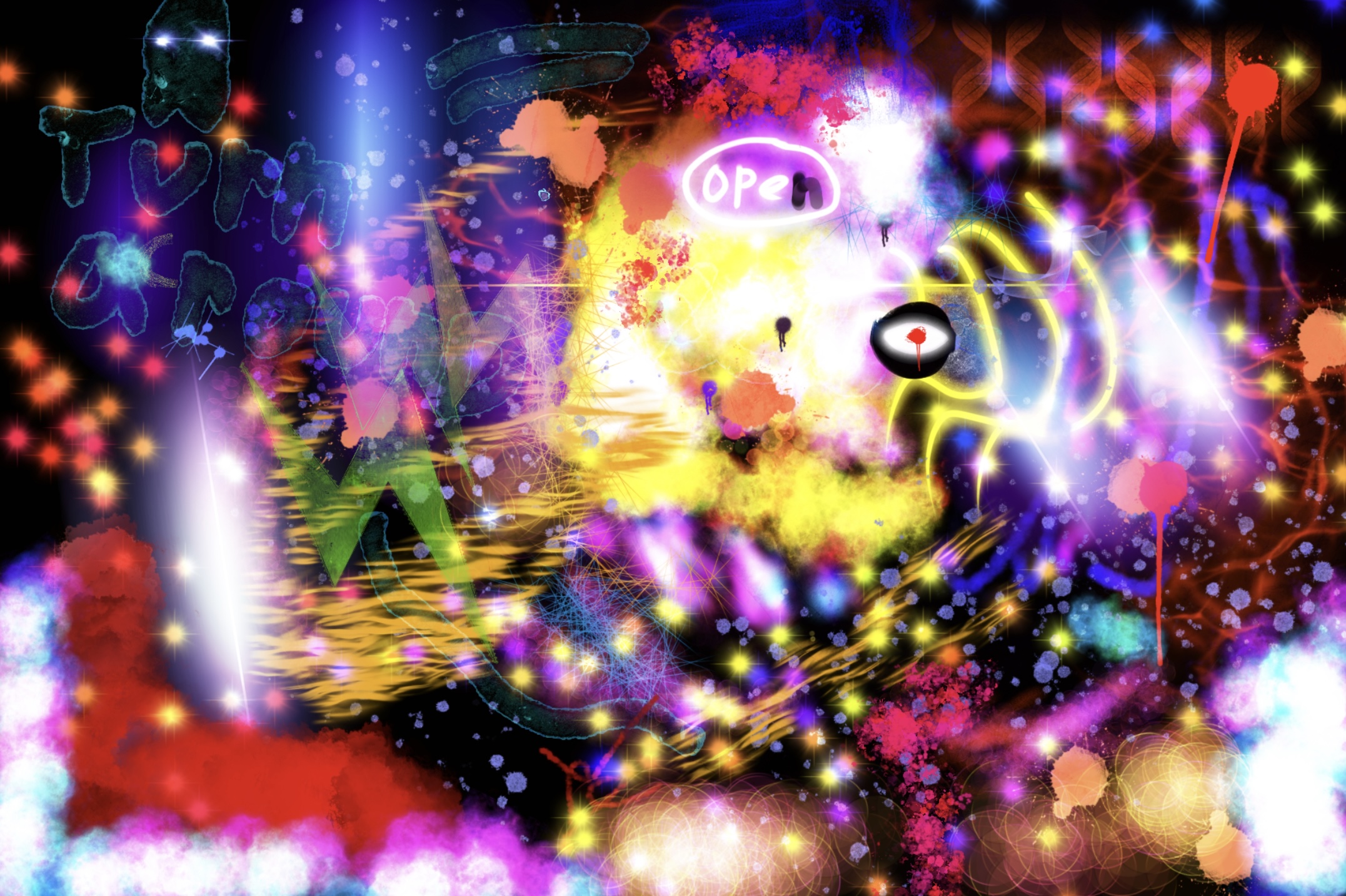
I just hopped on Procreate and let my mind take me where I wanted. This was a fun experiment using new tools without knowing how they work. I like how it turned out!
Artist: Kai Moeller
Kai has been unschooling for 4 years. He enjoys parkour, Minecraft and Roblox, spending long days with friends, reading, climbing trees, and stuffed animals. He is a co-host on the Unschooling with Kai podcast. Abington, PA; Age 9
Mara’s Artwork
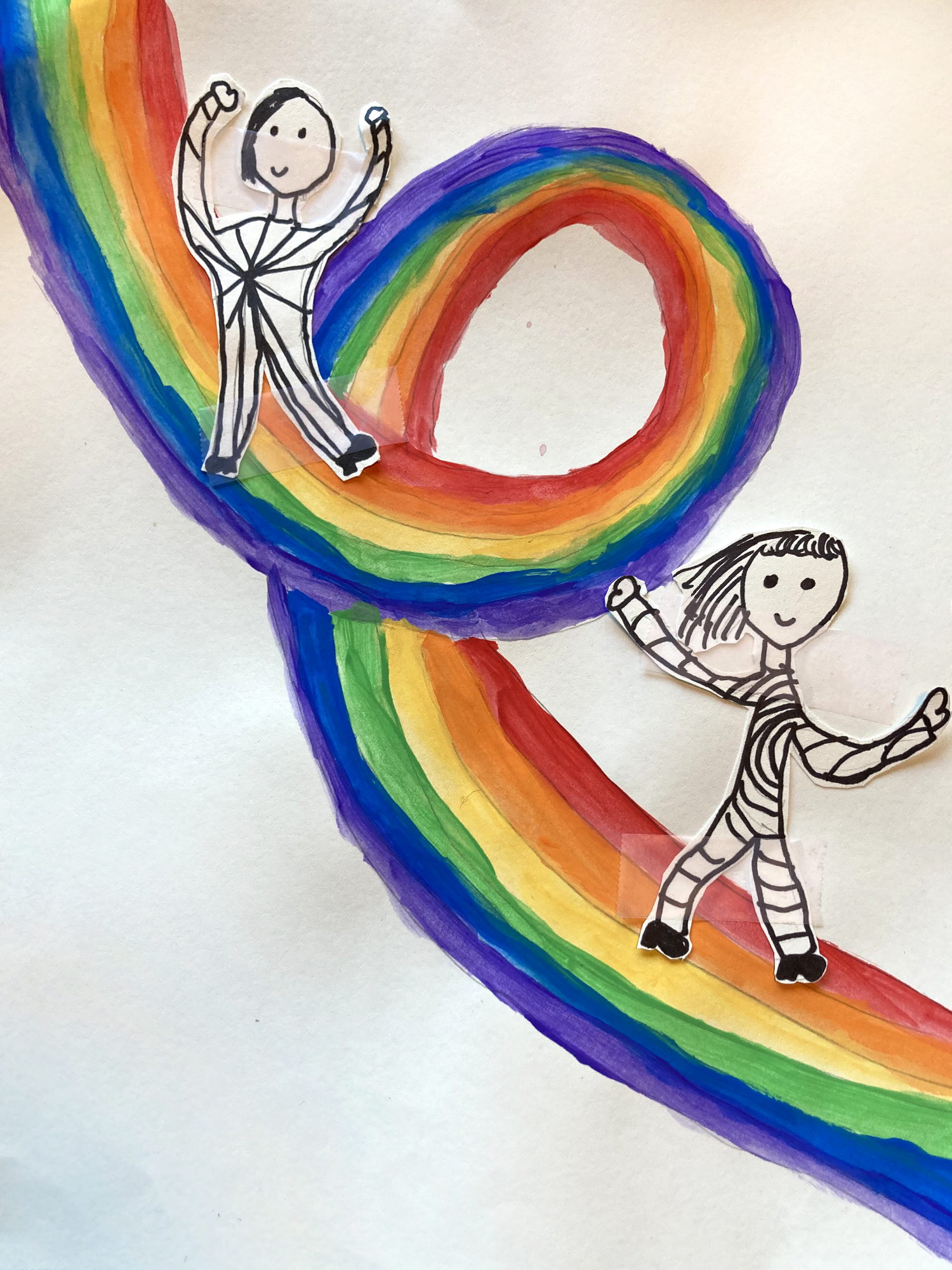
Artist: Mara Kammersell
Mara Kammersell is a ten year old unschooler who lives near the Rocky Mountains in Colorado. She spends her time reading, making art, playing with friends, and inventing things. She loves red pandas and snails.
Autumn’s Artwork
Soaring Serenity
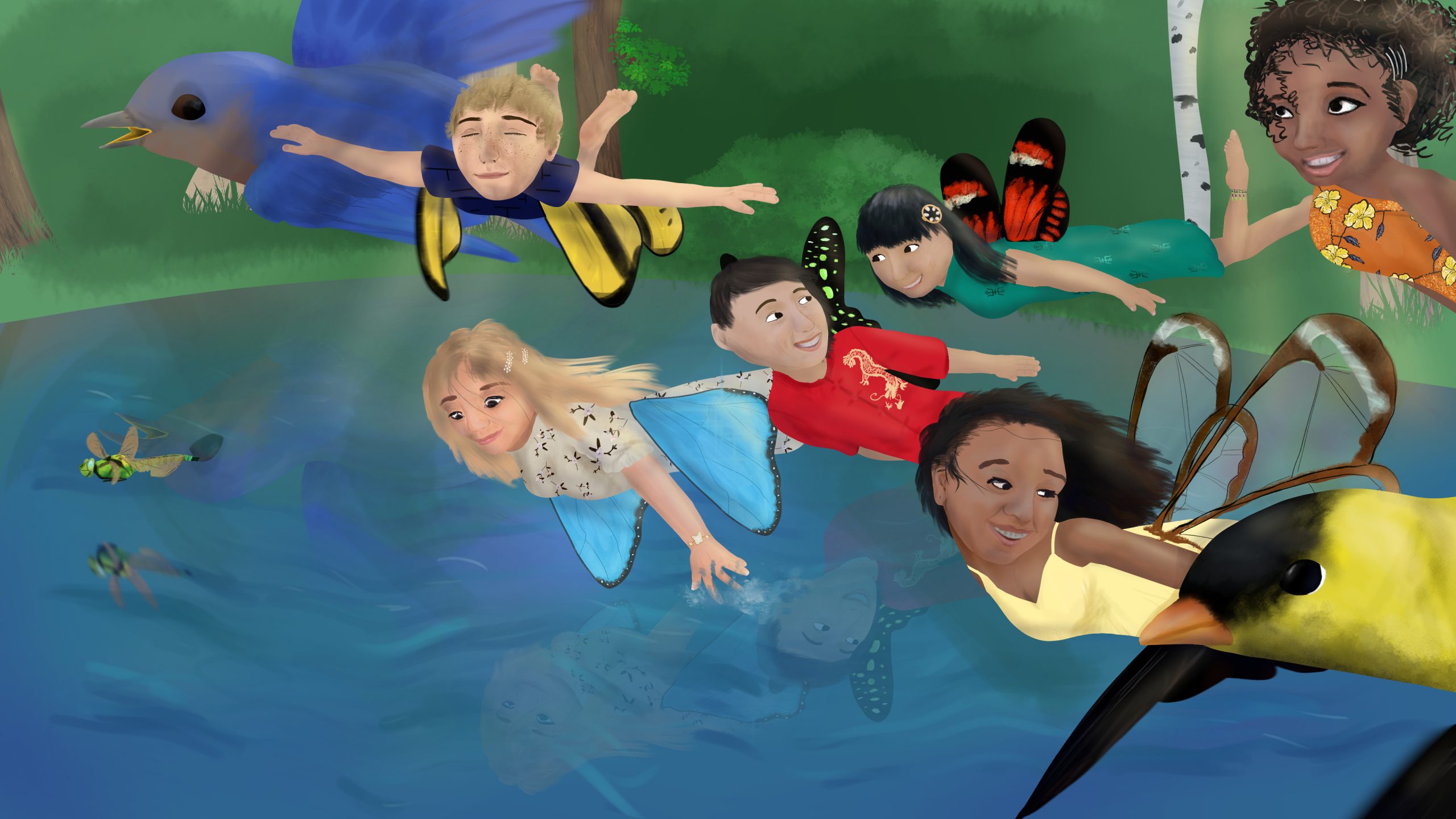
My first picture is called “Soaring Serenity”. A world without school for most people would seem like a fairytale, and many people who lived this reality would feel the wind under their wings like these carefree fairies.
A World Without School
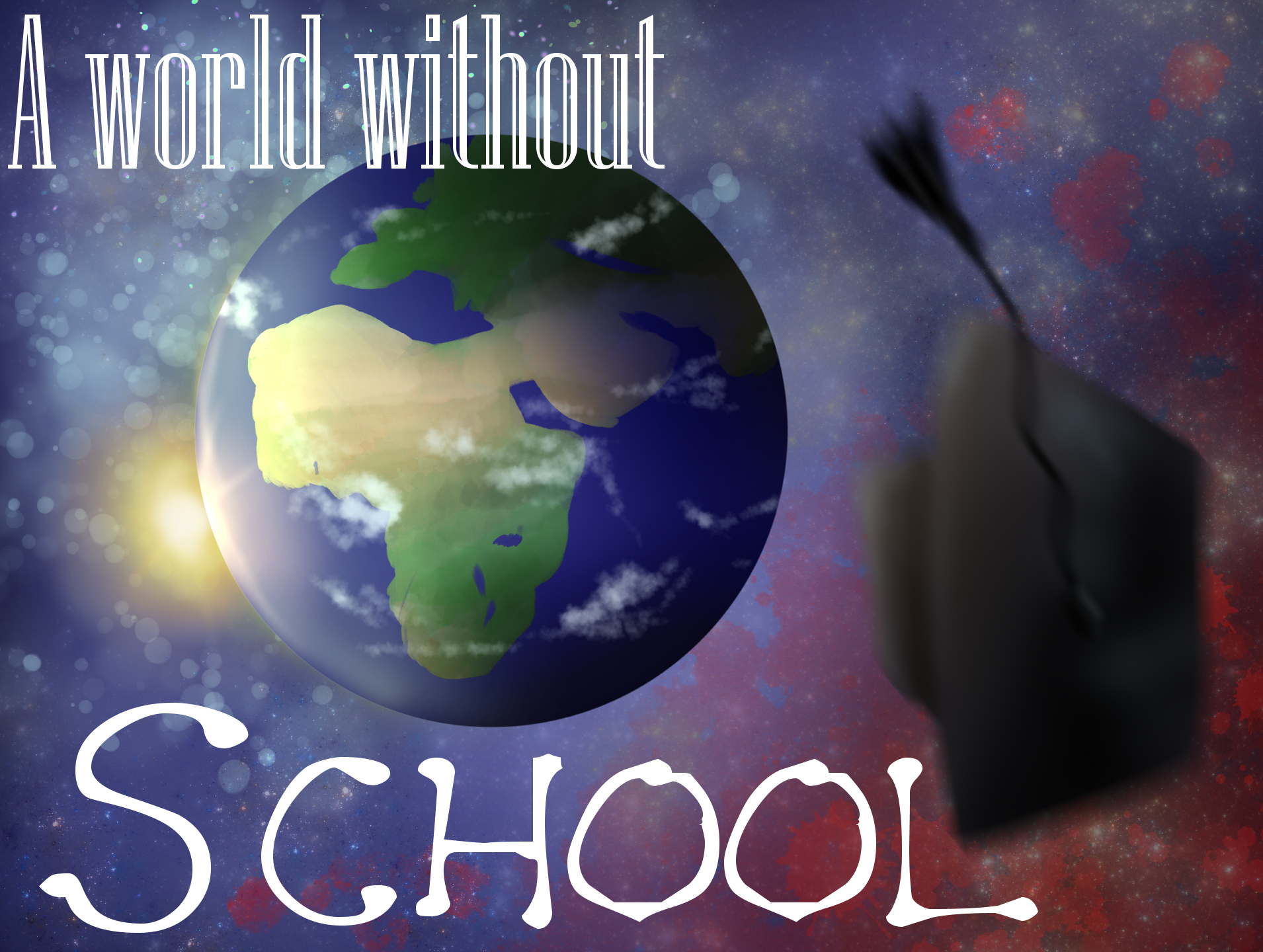
My second illustration is called “A World Without School”. The worry falls into the abyss of space. If the world could give up the graduation cap (Giving up your life to the goal of “completing your education”) then the light can shine once more to the children of the earth.
Artist: Autumn
My name Autumn and I am 14 years old. I have been unschooled my entire life and enjoy it very much. I love to knit, write, draw and animate, being an artist/animator is my dream for the future! I also have a neighborhood dog walking business with my younger brother. I live in Santa Fe, New Mexico.
Elsa’s Textile Artwork
Homework
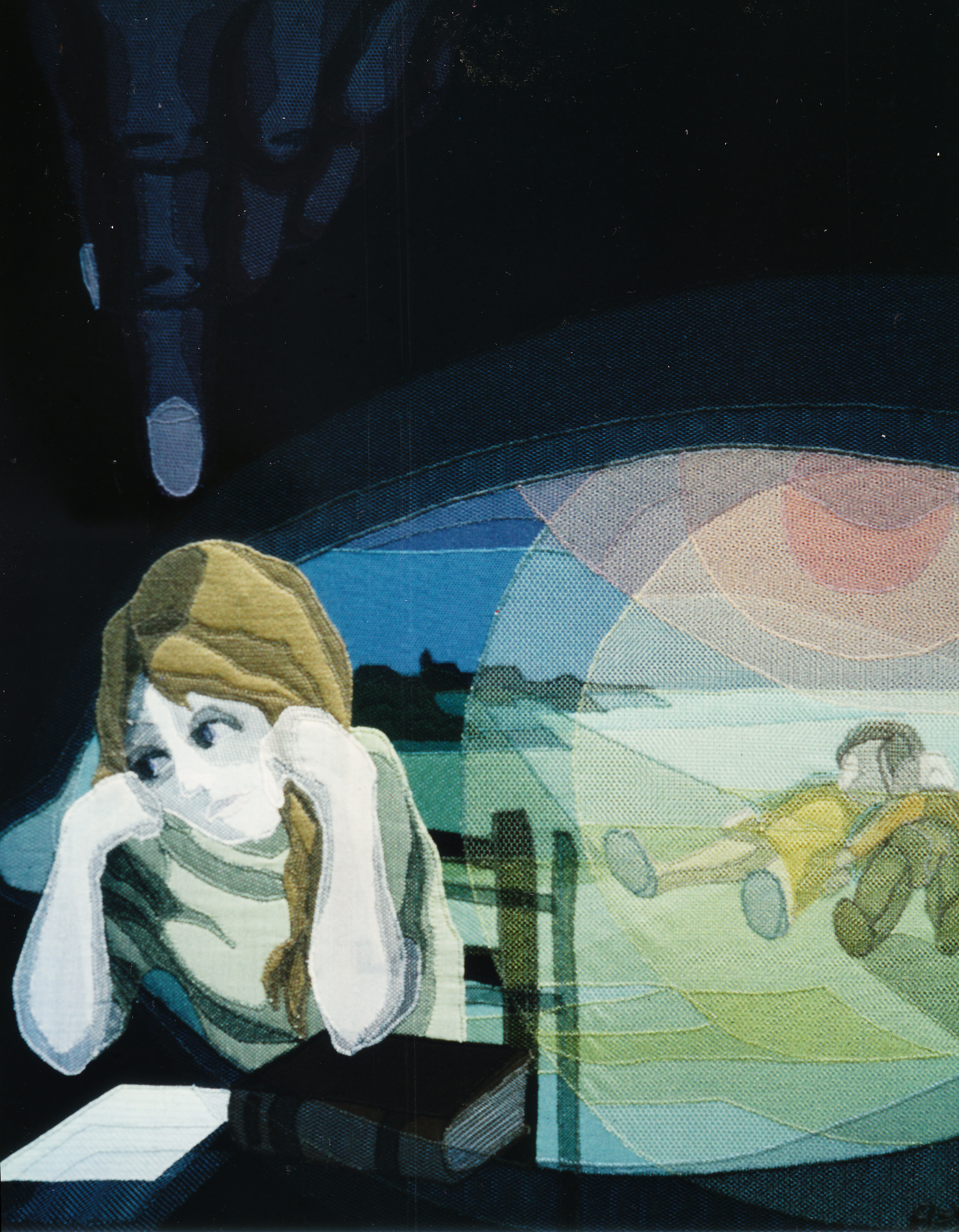
At the moment I read the invitation to send artwork in the line of a world without school, my painting in textile, made in 1977, came into my mind. The title is ‘homework’. While doing homework as child I always dreamed of freedom, to play outside and do the things of my real interest. The technique is quite rare and I developed it myself at that time. On a piece of cloth I created the image with several pieces of different cloths and with a zig-zag method on the sewing machine I fixed it on the background material. This painting is from a series ‘youth memories.’
Village school
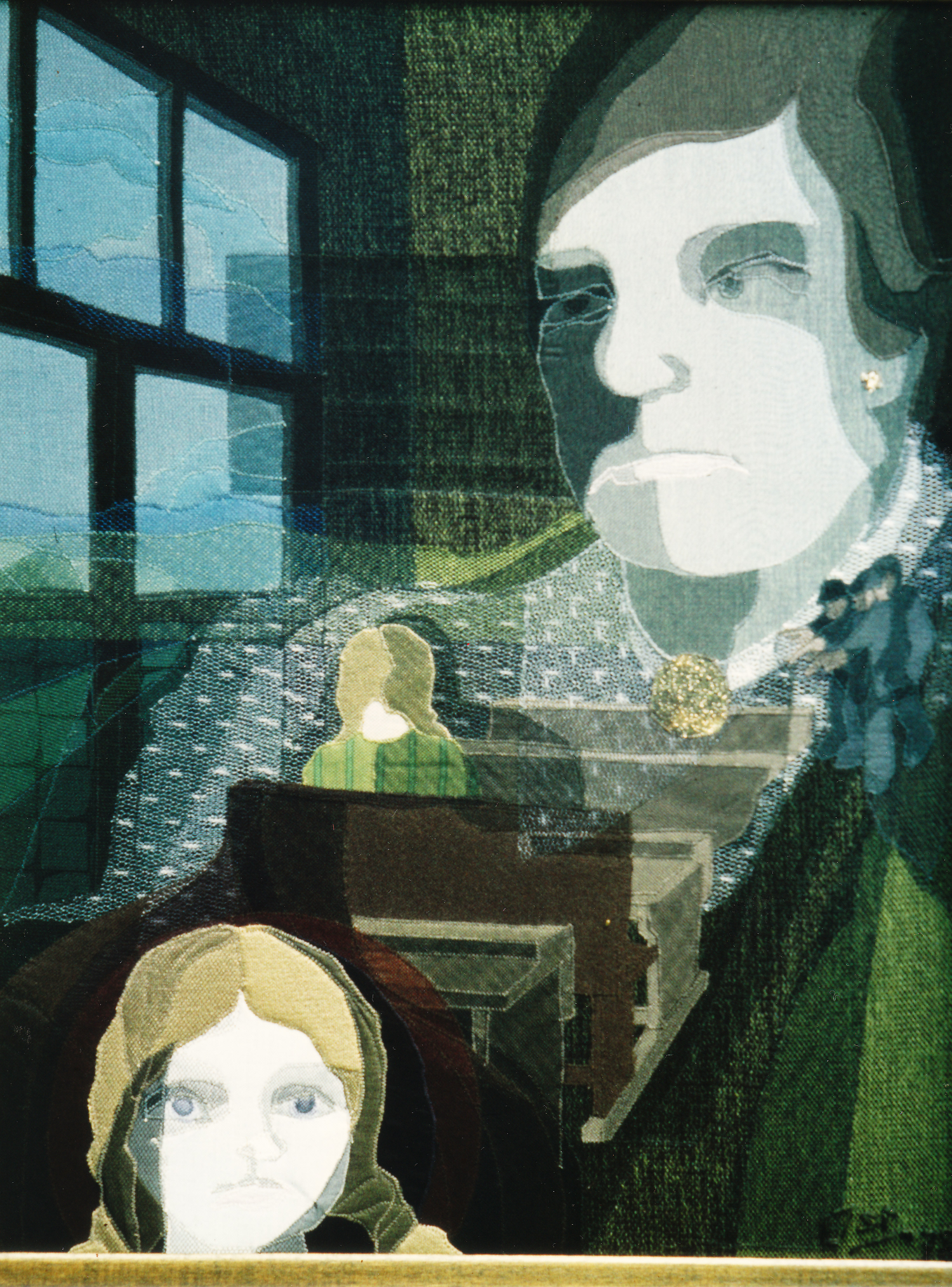
This is called ‘Village school’ and speaks for herself.
Flying
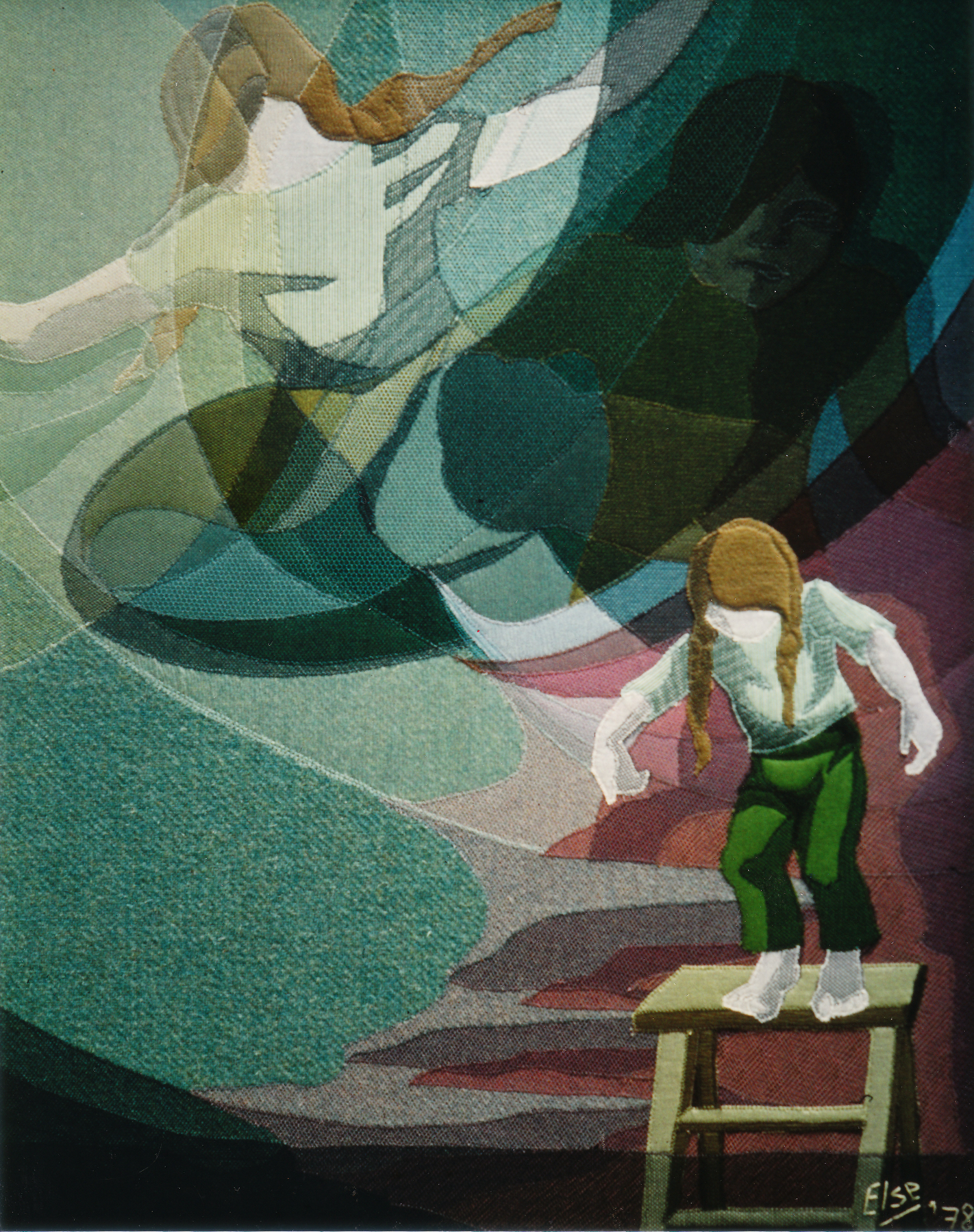
As child I was sure that I could fly, so I tried to train myself to do so, by jumping each time from a higher step of the stairs in our home. It was strictly forbidden and I did it only when my Om was somewhere else. I have hurt myself several times and at the end I stopped trying.
Artist: Elsa Geilman
Born (1938) in the Netherlands, as first grader in a traditional village school, I became sick each time I had to go to school. My body told me and my parents, that this way of education was wrong for me. After the war, they sent me to the Montessori school in town, which was better. Only at the secondary Montessori school, I had a hard time and became a drop-out. Too much homework, tests and examinations, even in that time (1950-55). Currently living at Crete in Greece.
I am Anti the School System by Fran Liberatore
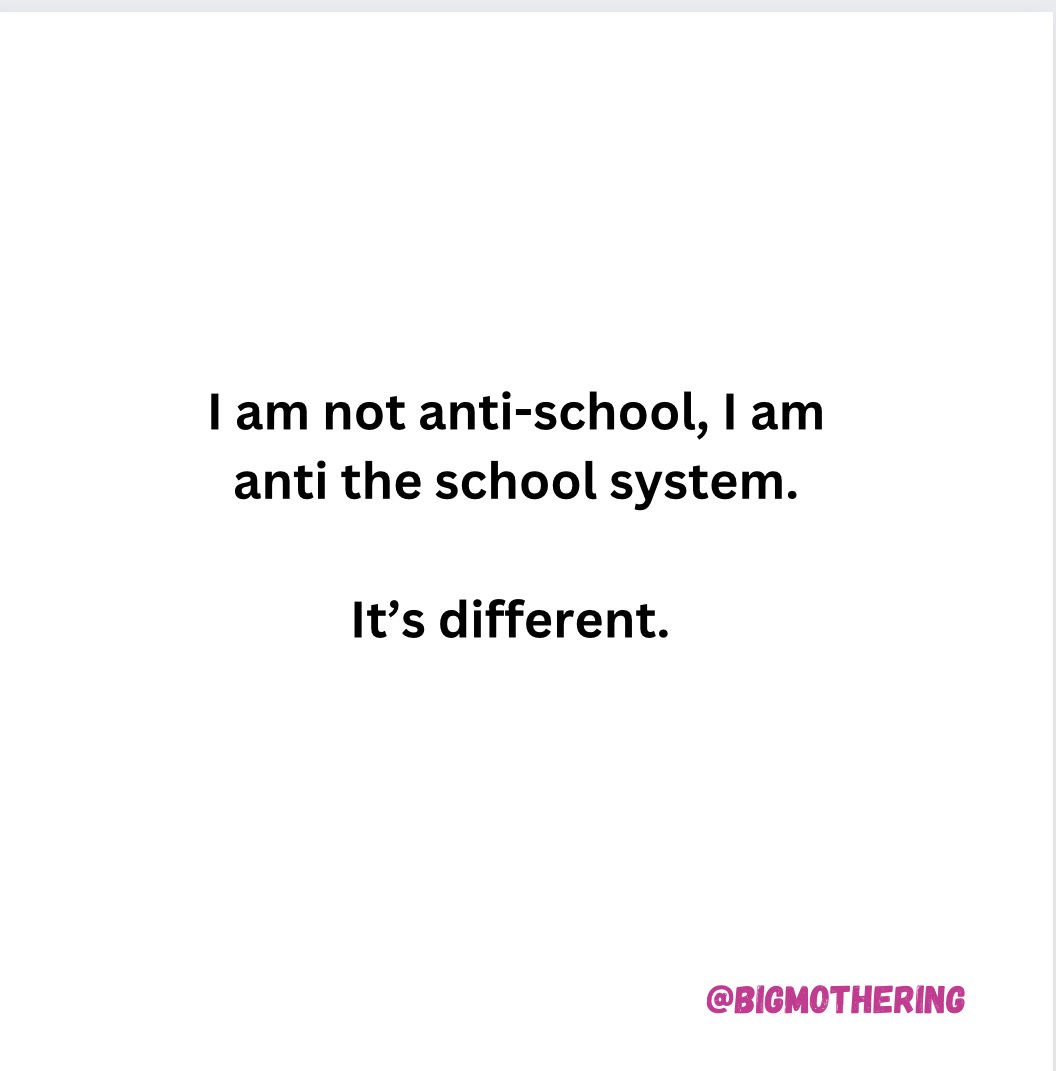
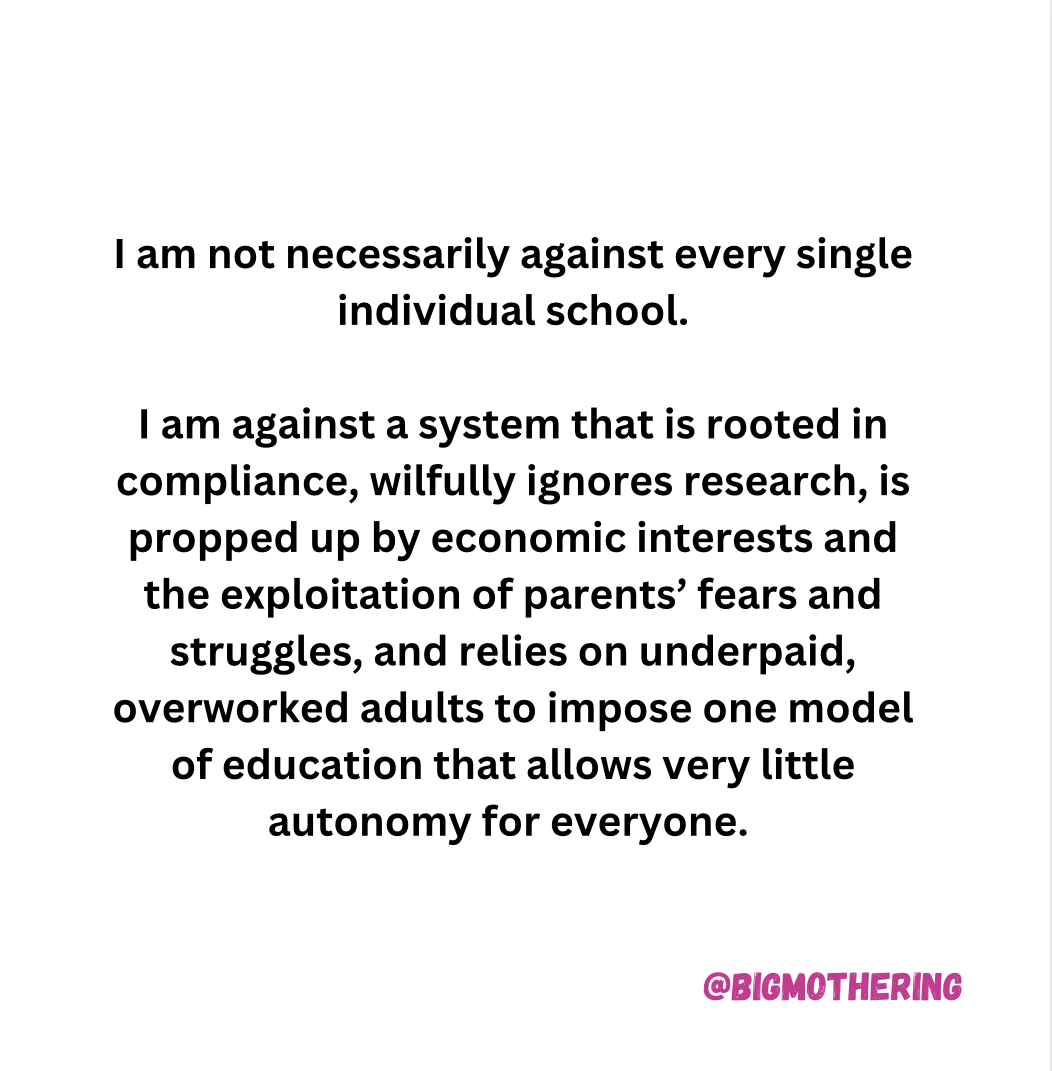
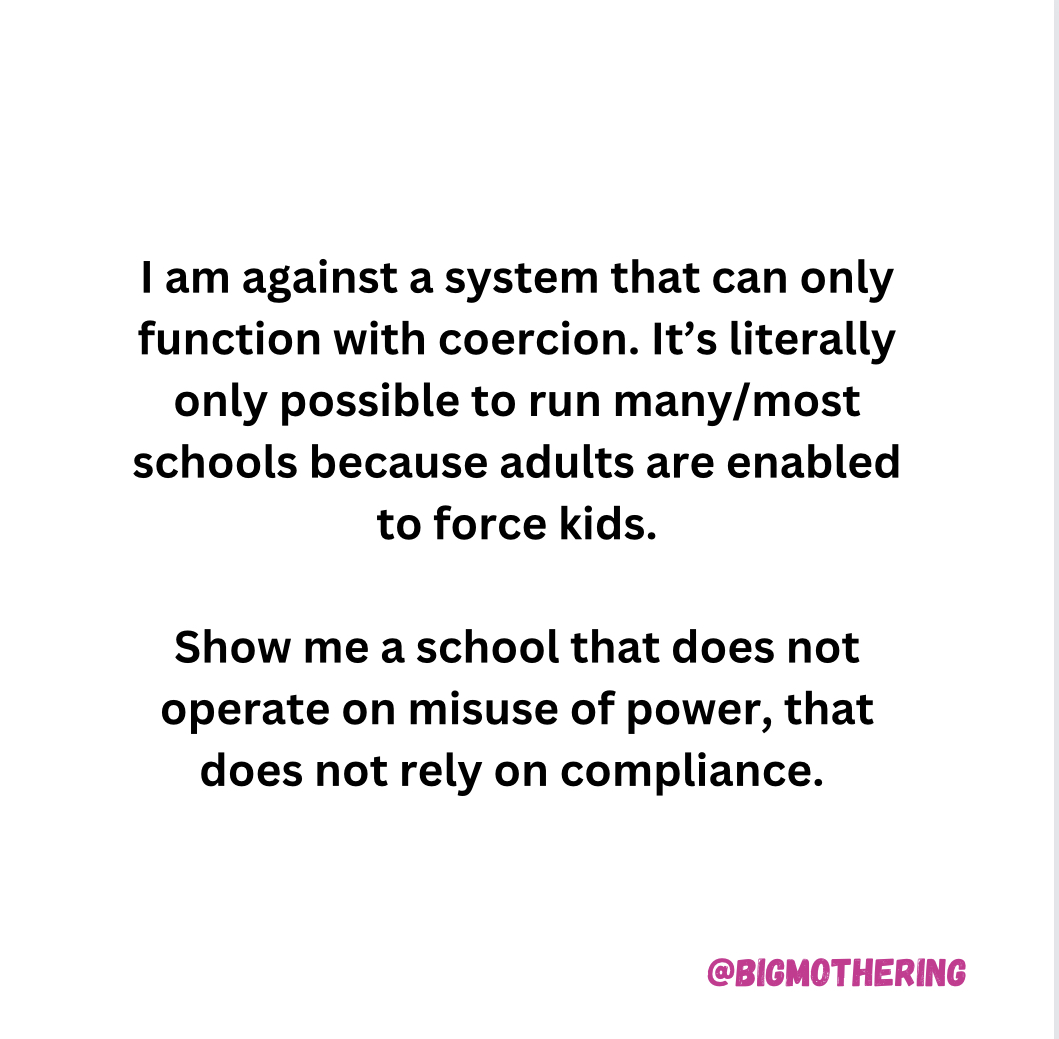
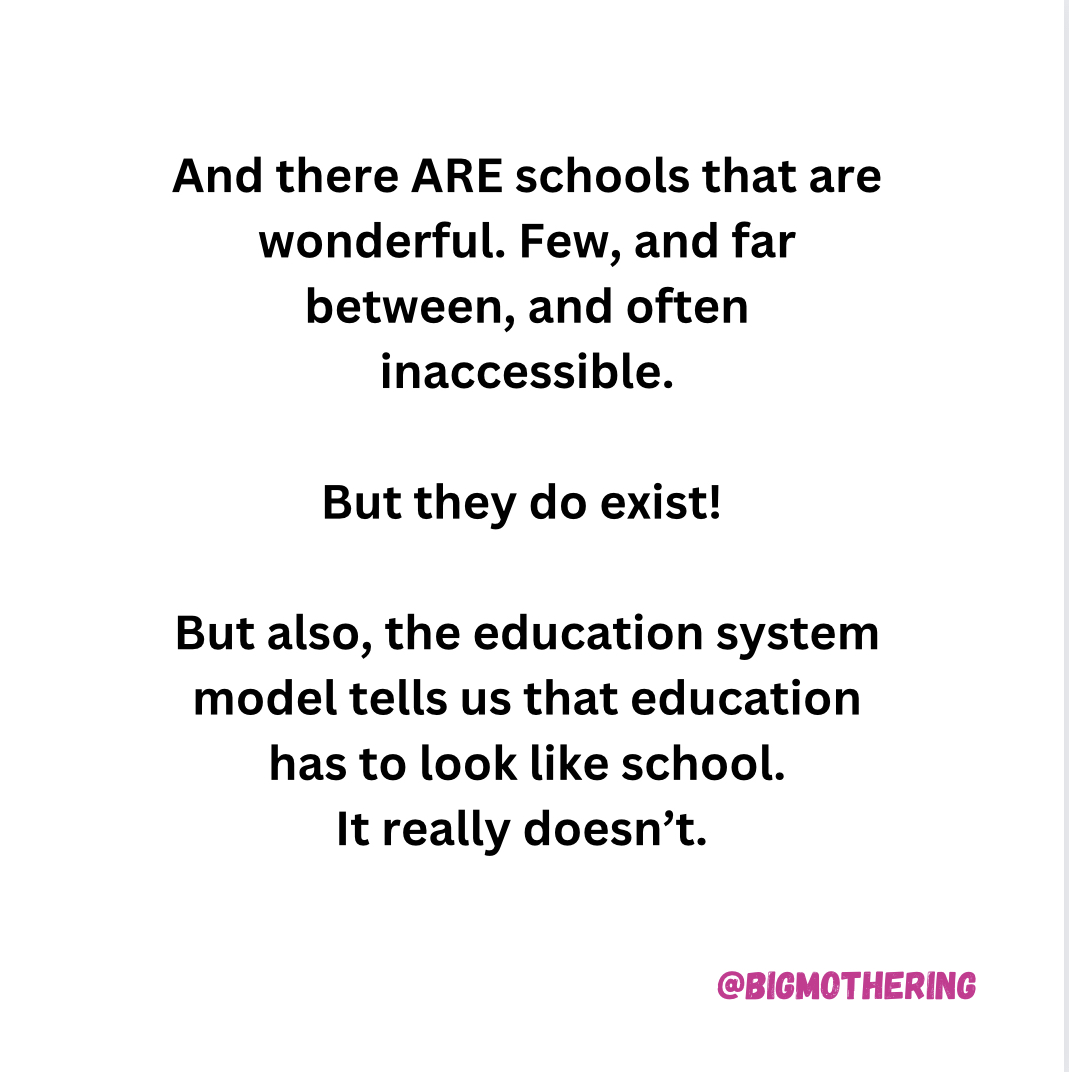
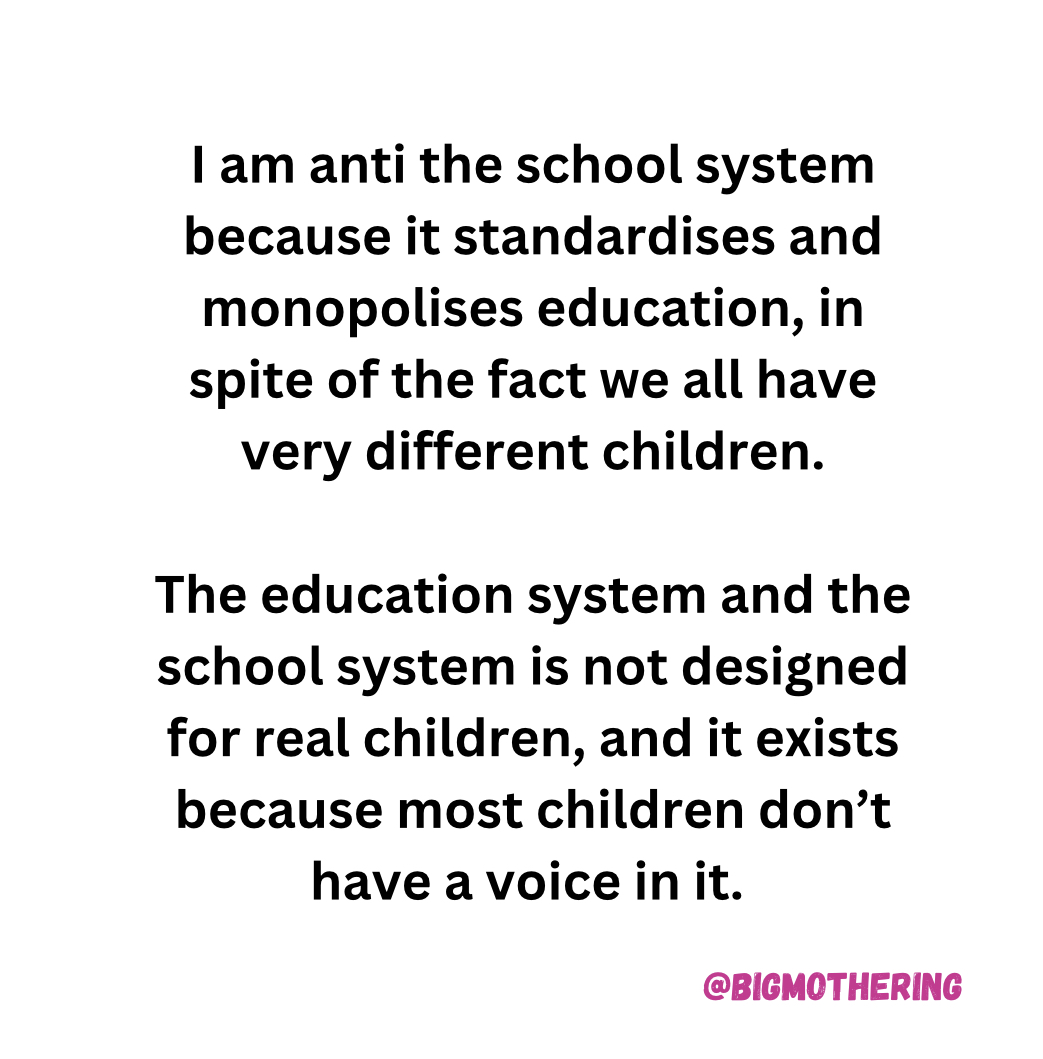
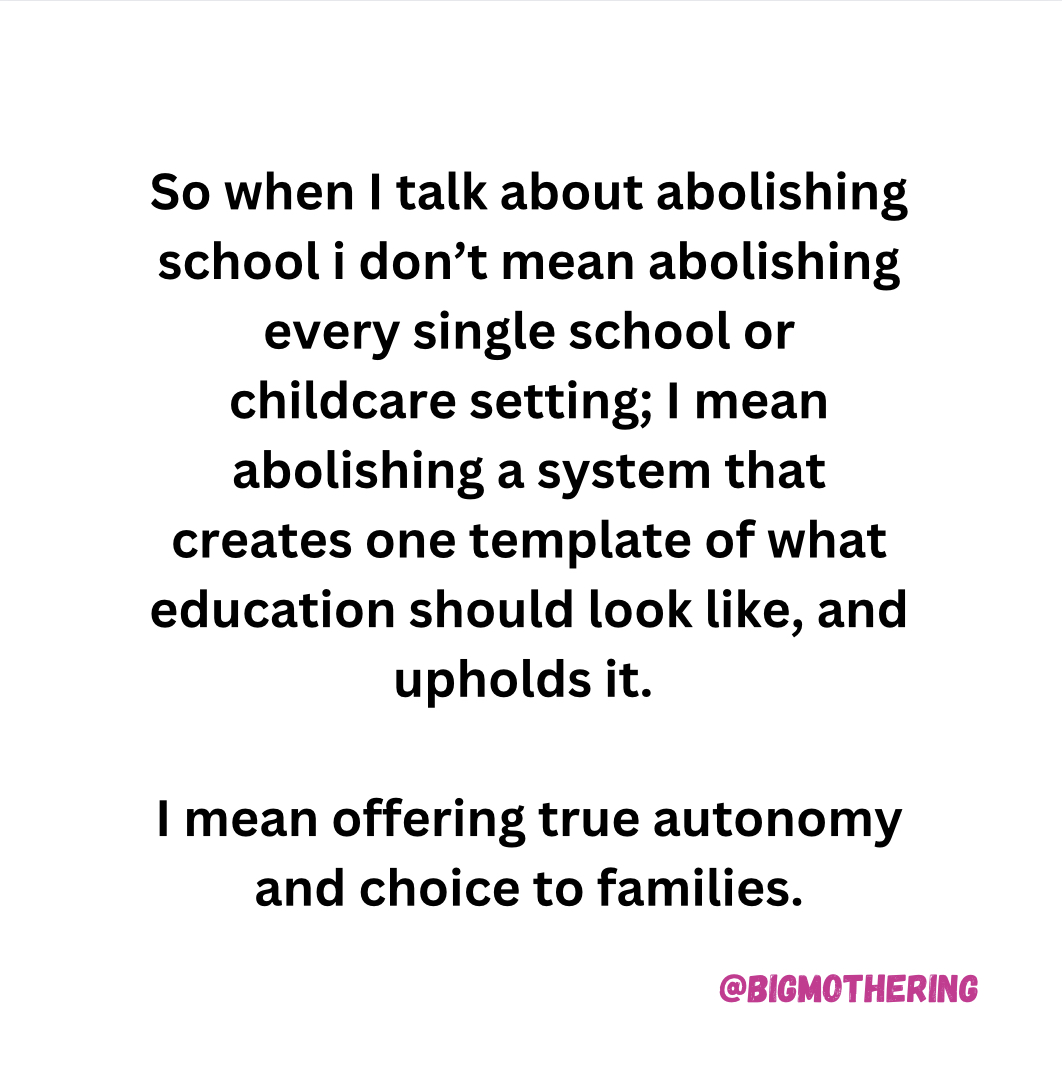
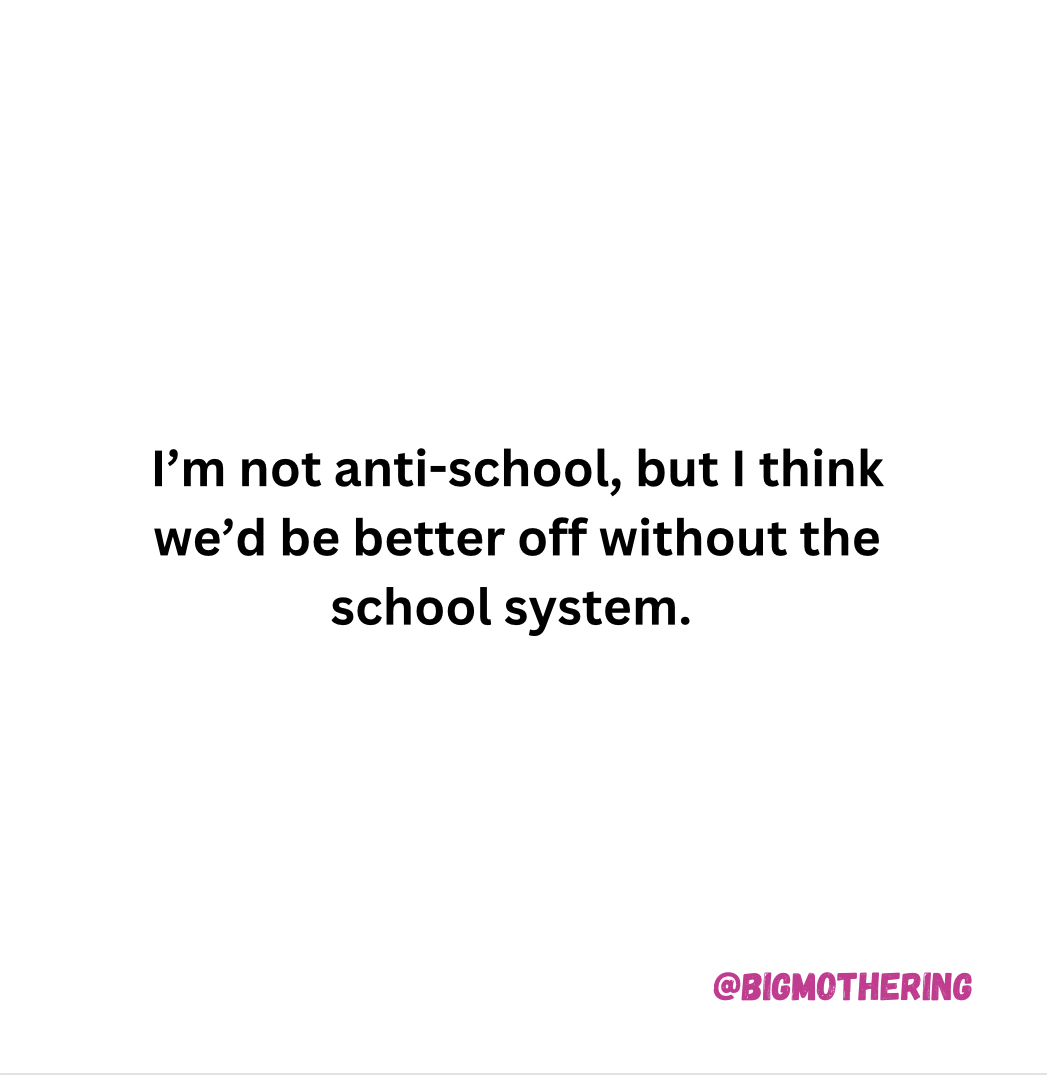
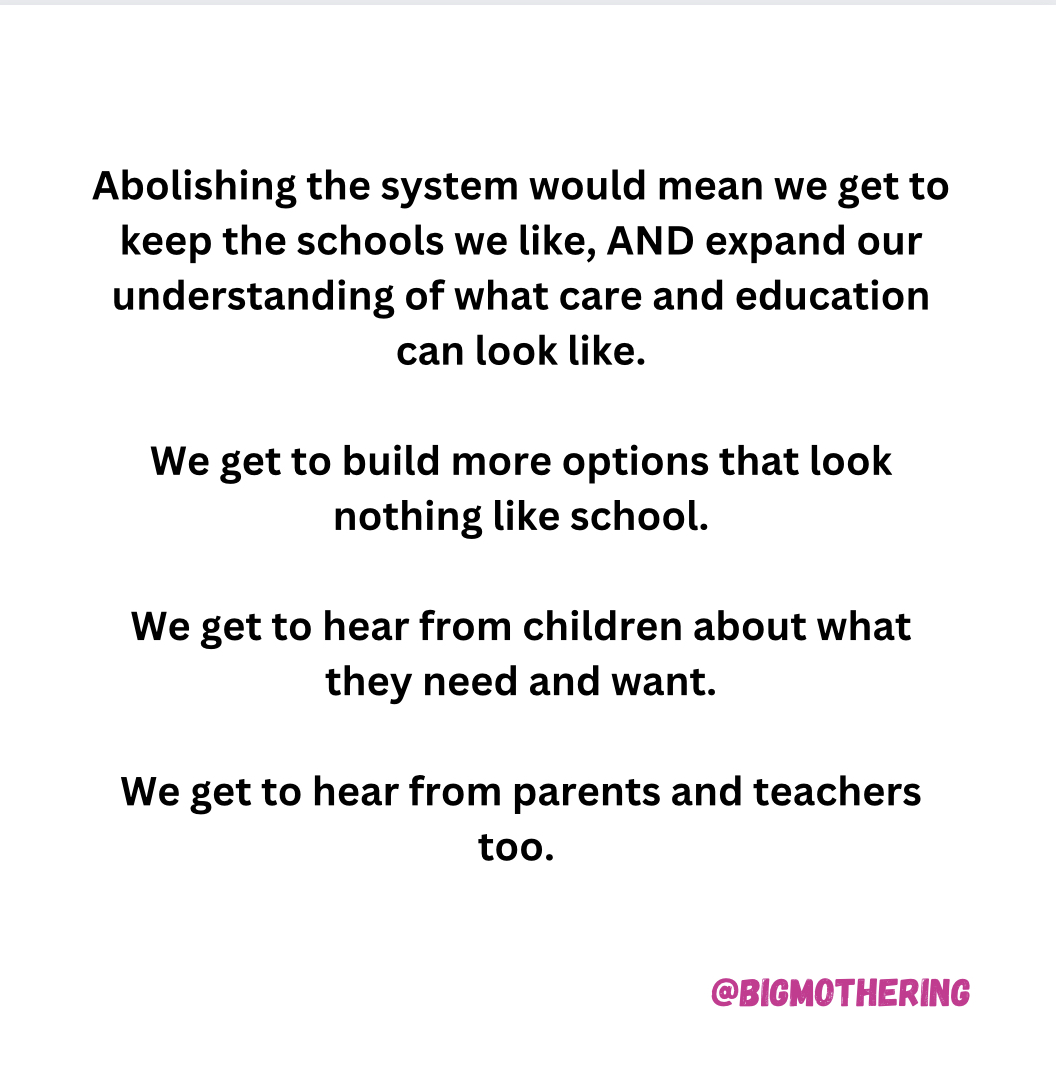
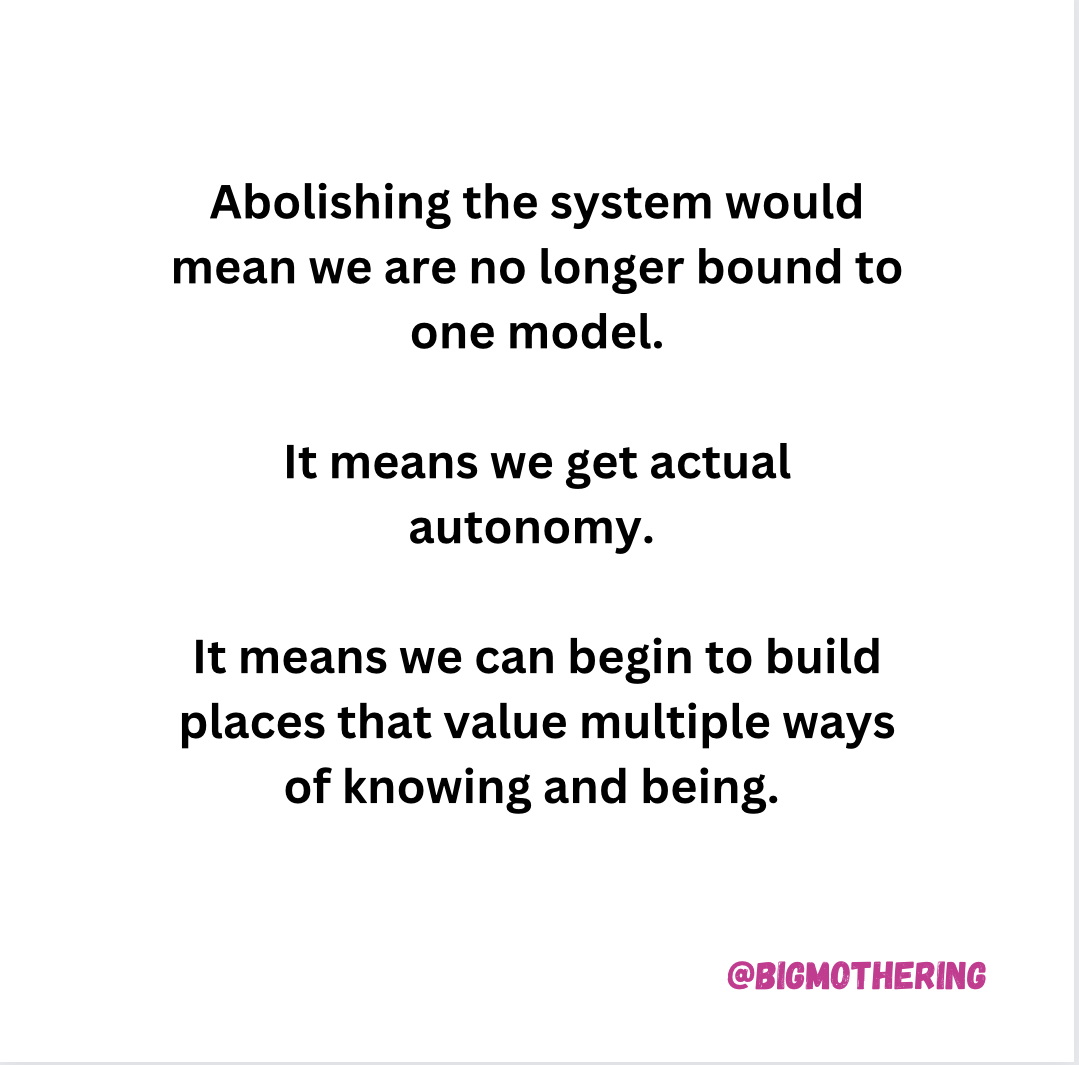
These slides were originally posted here on Instagram and have been included here with consent.
I am anti the system 🙌🔥
It’s a bit like saying I’m against patriarchy, but not individual men. I am not anti-men. I am anti a system that harms us ALL (men included).
There are many amazing schools out there. There are schools people believe in and want to keep. I am not anti-school, but I believe the school system harms us all, to varying and more or less life-threatening extents, even those who appear to benefit from it.
No amount of tweaking is going to make it okay 🤷♀️
Author: Fran Liberatore
Francesca Liberatore is an unschooling mother, and believer that joyful learning for all ages, children’s rights and respectful parenting are radically political acts. She shares her deschooling and unschooling journeys. Follow Fran at @bigmothering on Instagram.
Get Out of the Box by Lynette Culverhouse
Whether we like it or not the system we have used to educate our nation’s children for centuries is no longer working for us as a society. It is outdated, limiting and fails to prepare all children to be engaged, thoughtful, contributing members of society. Now, more than ever, is the time to look at that.
It’s time to climb out of the education box that, as a nation, has limited our full participation in the life and governing of our country. The model we are using is a factory model that was designed to prepare people to follow orders and fill a role in the manufacturing assembly line that ensured that capitalism and wealth creation thrived. It was never designed to ensure that all our citizens experience the freedom to pursue life, liberty and happiness. Maintaining a compliant and inadequately paid workforce in order that a small minority can hold the power and wealth is no longer politically acceptable. We have to change and that change has to begin with education.
Recently I attended a conference for educators, actually an “unconference”. What this means is that everyone attending has an equal voice and no one person is considered to have more expertise than the next. A schedule is created at the beginning of the day and anyone who has a topic to discuss chooses a time slot and a space and a conversation is started. It is an exchange of ideas. The day was full of inspiring and engaging conversations about how to be better at our craft and improve the learning experience for our nation’s children. I can say with absolute certainty that people who go into teaching are dedicated, inspiring and adventurous people who only want to pass on the joy of learning to the children in their charge.
There is a level of frustration among teachers because the reins of power prevent them from releasing the full force of their intellectual and playful power.
One conversation I attended was titled, “What is the purpose of public education?” This, I thought, is a great start to thinking about alternative models of education, to begin climbing out of the box that maintains a one-size-fits-all mentality. But it was surprisingly hard for people to stay focused on this question. As teachers, we want to find a solution to any problem and this means working within the current context but our current context is no longer working or relevant for the 21st century. The current context is a school building with the school day broken into time slots with a different subject being taught in each slot and in every school throughout the country the same content is being taught regardless of who the children are. We have lost sight of what is important. We adults have almost lost our children. We are confined to a box and we are confining them to a box, too.
The way out of the box is to change the context and to do this we have to think hard about the purpose of education. There are some big questions to ask and have conversations about. Is society’s goal to have all students pass a high stakes test or to come out of their education with a clear sense of their strengths and value and how to use them to make a life for themselves?
Do we want our students to recite history or make history?
Do we want our students to believe in and help create a just and peaceful society or to be passive bystanders of a society that is divided and hierarchical?
Do we want our students to find their own way to express themselves in the world or to be limited to writing? What about oral debate, dance, athletics, creative arts, drama?
Do we want a society that speaks kindly to one another and offers support in the pursuit of happiness or one where competition keeps us divided?
These are just a few of the questions we need to ponder.
If we look at the state of the leadership of the United States we see grown people bullying, and mocking those whose opinions differ from theirs. We see people abusing their power and breaking their trust to those they serve by taking more than their share of the wealth and creating laws that serve moneyed interests and not the people. We see people being disrespected and violated by those in power. We have systems and media that manipulate the public and particularly vulnerable people. And we see a society that is failing the majority of poor and working poor people. This is our moment to reimagine the future.
Let us begin to imagine a society where all people are respected, supported, and valued.
Let us imagine a society where having money or power doesn’t grant you greater status or respect.
Let us imagine a society with a safety net so nobody falls through the cracks.
Let us imagine a society where everyone is encouraged and supported to find their own way to contribute and that all are well rewarded for their work.
Let us imagine a society where everyone is happy and fulfilled with a network of support for the hard times.
If we dare to imagine this then we must begin by re-defining our system of education.
Author: Lynette Culverhouse
After 40 years working in the world of education both in schools and within homeschooling, Lynette is currently writing a book on the urgent need to redefine education to meet the needs of our current divided society. She is originally from England but has also lived and taught in West Africa and for the last 35 years has lived in Arlington, MA. She homeschooled her own children for 6 years until a complicated divorce trial ended with an order for them to attend school.
A Glimpse Into a World Without School by Stephen Dill
Imagine!
Imagine a world without schools. A world where children are free to learn at their own pace and in their own way. A world where they are surrounded by resources and support, but not forced to follow a rigid curriculum. A world where they can explore their interests and passions, and develop their own unique talents.
This is the world of self-directed education. It is a world that is becoming increasingly possible, thanks to the rise of technology and the growing recognition of the importance of individualized learning.
In a world without schools, children would learn in a variety of ways. They would read books, watch videos, explore the natural world, and talk to experts. They would also learn from each other, collaborating on projects and sharing their ideas. They would learn in the time-tested method: play.
School buildings would be transformed into community centers and creative spaces. They would be places where people of all ages could come together to learn, experiment, create, and connect.
A world without schools would be a world of possibility. It would be a world where children are free to reach their full potential.
How Would Life Be Different?
The world would change in many ways if everyone was a lifelong self-directed learner and no one remembered mandatory/coercive education. Here are a few of the ways:
- People would be more engaged in their learning: When people are self-directed learners, they are more likely to be engaged in their learning because they are choosing what they want to learn and how they want to learn it. This can lead to deeper learning and better understanding of the material.
- People would be more creative and innovative: When people are self-directed learners, they are more likely to be creative and innovative because they are not bound by conventional learning methods. They are free to explore new ideas and to find new ways of learning.
- People would be more adaptable to change: The world is constantly changing, and people who are self-directed learners are more likely to be adaptable to change. They are used to learning new things and to adapting their skills to new situations.
- People would be more motivated to learn: When people are self-directed learners, they are more likely to be motivated to learn because they are learning for their own benefit. They are not learning for a test or for a grade, they are learning because they want to learn. This can lead to lifelong learning and to a more knowledgeable and engaged citizenry.
- There would be a greater emphasis on critical thinking and problem-solving skills: In a world where everyone is constantly learning, it will be more important than ever to be able to think critically and solve problems. These skills will be essential for success in both work and life.
- There would be a greater focus on collaboration and teamwork: As people learn more about different subjects and perspectives, they will be better equipped to collaborate and work with others. This will be essential for solving complex problems and for creating new ideas.
- There would be a greater appreciation for diversity and difference: As people learn about different cultures and backgrounds, they will be more likely to appreciate diversity and difference. This will be essential for building a more inclusive and equitable society.
Overall, the world would be a better place if everyone was a lifelong self-directed learner and no one remembered mandatory schooling. People would be more engaged, creative, innovative, adaptable, and motivated to learn. This would lead to a more knowledgeable and engaged citizenry, which would benefit society as a whole.
But What of the School Buildings We Have Now?
Conventional school buildings can be reused for self-directed learning in a variety of ways. Here are a few ideas:
- Community centers: School buildings can be converted into community centers that provide a variety of services for people of all ages. This could include things like after-school programs, adult education classes, and meeting space for community groups.
- Coworking spaces: School buildings can be converted into coworking spaces that provide a place for people to work independently or collaborate with others. This could be a great option for entrepreneurs, freelancers, and remote workers and provide role models and internship opportunities for young people.
- Makerspaces: School buildings can be converted into makerspaces that provide tools and resources for people to learn about and create new things. This could be a great option for people who are interested in engineering, design, or technology.
- Libraries: School buildings can be converted into libraries that provide a place for people to learn and explore. This could include things like books, magazines, computers, toys, games, and other resources.
- Museums: School buildings can be converted into museums that showcase the history and culture of a community. This could include things like exhibits, artifacts, and educational programs.
These are just a few ideas for how conventional school buildings can be reused for self-directed learning. By being creative and innovative, we can find new and exciting ways to use these buildings to benefit our communities. Reusing conventional school buildings for self-directed learning will save money by using existing buildings instead of constructing new ones, be more sustainable, create or keep a sense of community and belonging in the neighborhood, and promote innovation through reimagining the possibilities the existing spaces could become.
Realistic?
Our challenge in imagining a future without schools reflects the everpresent existence of schools in our lives and the lives before us (our parents, grandparents, etc.). It’s not easy to envision such an alternative cultural reality.
However, it is not a simple matter to imagine our children absorbing the knowledge of the world without the influence of an adult, either. And yet we know many who are doing so, and we may know adults who never sat in schools in an effort to learn what was important to them.
Have faith in progress. Indulge in the creative magic of seeing a world that is healthier, more respectful, more independent, and is sustaining that progress without the baggage of compulsory, coercive education models. As often as you can, see a world without schools!
Author: Stephen Dill
As a systems thinker, I came up with my own solution to individual learning at AllNewPublicEducation.com and began to find others who believed in Self-Directed Education as the future. Ultimately, I desire to reverse the negative consequences of denying individuals the environment each needs to develop as a well-rounded human: play, respect, freedom to learn as they wish, and opportunity to apply themselves to their calling.
Imagining a World Without School by Janice McDonald
In a world without school, I imagine:
- People might be able to question rules that don’t make sense to them and the “authorities” without fear of retribution.
- People might get the help they need instead of punishment or expulsion.
- People might feel resourced enough to shift from relating to each other through fear and threats towards more trusting and respectful ways.
- People might be more authentic if they didn’t worry that their inclusion in a group or society was conditional upon their conformity.
- People might know in their bones that their worth isn’t tied to anything they do or don’t do; that they matter just by existing.
- People might know that there are many ways of being and multiple types of intelligence and none are better than the others.
- People might get to create their own definitions of success and realize it isn’t a scarce resource.
- People might learn how to work together with care at the core and figure out how to work towards meeting everyone’s needs.
- People might learn to love their bodies and the differences between bodies.
- People might not feel like they have to control other people and how they do things.
- People might not feel like there’s one “right” way to live.
- People might learn that children are human beings worthy of figuring out what they want out of life just like adults.
- People might learn to trust themselves and their intuition.
- People might realize that mistakes are just more information and not work so hard to be “perfect” or feel like they have to hide their “failures.”
- People might learn that the process is oftentimes even more important than some end product.
- People might understand why consent is so important.
- People might realize that no matter how put-together others look on the outside, we are all just figuring it out as we go along, too.
Author: Janice McDonald
Janice is a mom of two self-directed young people in Portland, OR and Editor of Tipping Points Magazine. She loves connecting with others through sharing stories and experiences.
If you enjoyed this article and feel called to give back to ASDE, here are ways you can support our work:
- Donate money
- Share our content with others! Click one of the buttons above to easily share on Twitter, Facebook, or email.
- Consider becoming a Contributor for Tipping Points
Tipping Points Magazine amplifies the diverse voices within the Self-Directed Education movement. The views expressed in our content belong solely to the author(s). The Alliance for Self-Directed Education disclaims responsibility for any interpretation or application of the information provided. Engage in dialogue by reaching out to the author(s) directly.


